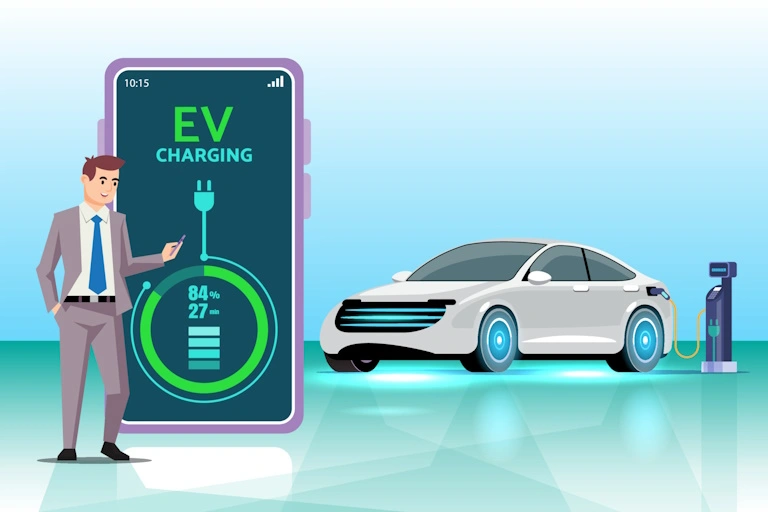The Ministry of Electronics and Information Technology (MeitY) has announced that a wireless EV charger developed indigenously is about to hit the commercial market. The charger charges between 90 per cent in three hours and is expected to enhance India’s charging infrastructure for EVs and support the nation’s clean energy mission.
Designed by C-DAC and VNIT in collaboration under NaMPET
The 1.5 kW wire-free charger was created under the National Mission on Power Electronics Technology (NaMPET). It is the result of a combined effort of Centre for Development of Advanced Computing (C-DAC), Thiruvananthapuram, and the Visvesvaraya National Institute of Technology (VNIT), Nagpur.
Key Features: Rapid Charging with High Safety
Having the ability to operate from a standard 230V, 50Hz AC single-phase supply, the charger charges a 4.8 kWh onboard battery pack at 48V from a 30A current. It has recorded a very high efficiency of 89.4% with a coil spacing as high as 12.5 cm. Inbuilt self-protection features include short-circuit and open-circuit protection, and Silicon Carbide-based MOSFETs with an operating frequency of 88 kHz provide high-speed power conversion.
The technology has been licensed to Global Business Solution Private Limited and the commercial production is commenced, signalling the start of the scaling up of Made-in-India clean transport solutions.
Indian Railways to Have Indigenous Propulsion System
Under yet another path-breaking programme, Indian Railways’ Chittaranjan Locomotive Works and C-DAC collaborated with three industry partners to implement a Memorandum of Agreement (MoA) for the development of an indigenous propulsion system for electric locomotives, such as two 2.5 MVA traction converters, three 130 kVA auxiliary converters, and a state-of-the-art train control and management system (TCMS). The project is in line with the vision of the Indian Railways to achieve complete electrification by 2030.
Kerala to Implement LVDC System towards Carbon Neutrality
Independent Memorandum of Understanding (MoU) between C-DAC and Kerala Development and Innovation Strategic Council (K-DISC) for the development of a 48V Low Voltage Direct Current (LVDC) system has been signed. The energy-saving system is certain to reduce energy consumption by 20–30%, aligning with Kerala’s Carbon Neutrality Roadmap 2050 and India’s Net Zero 2070 vision as a whole.
During the gathering, MeitY Secretary S. Krishnan spoke about how indigenous power electronics technologies would be leading the way to growth in the future. He highlighted their potential in areas such as EV charging, rail electrification, and renewable energy systems.
Read Also: Chanakya Opportunities Fund Invests ₹36 Crore in Sadbhav Future Tech

